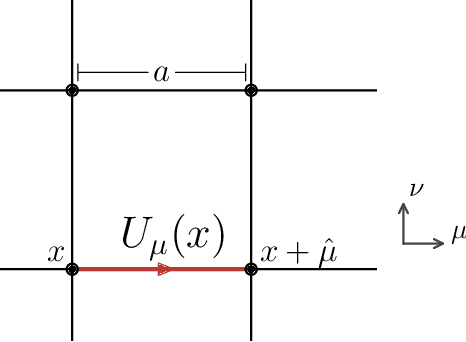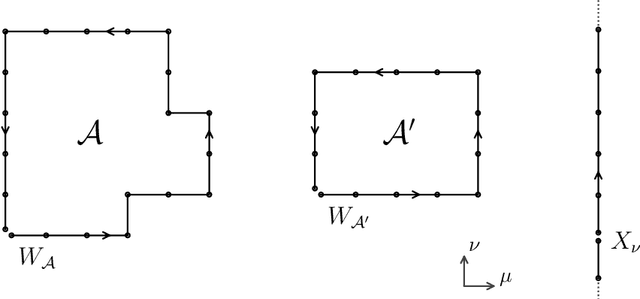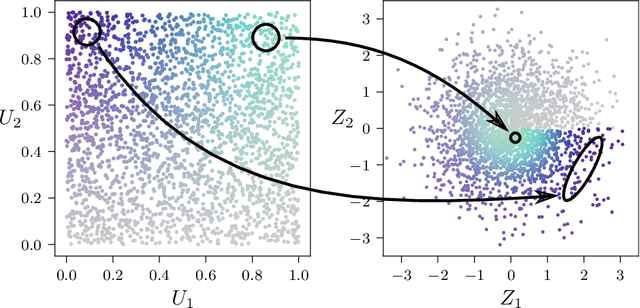Machine Learning and Variational Algorithms for Lattice Field Theory
Paper and Code
Jun 03, 2021



In lattice quantum field theory studies, parameters defining the lattice theory must be tuned toward criticality to access continuum physics. Commonly used Markov chain Monte Carlo (MCMC) methods suffer from critical slowing down in this limit, restricting the precision of continuum extrapolations. Further difficulties arise when measuring correlation functions of operators widely separated in spacetime: for most correlation functions, an exponentially severe signal-to-noise problem is encountered as the operators are taken to be widely separated. This dissertation details two new techniques to address these issues. First, we define a novel MCMC algorithm based on generative flow-based models. Such models utilize machine learning methods to describe efficient approximate samplers for distributions of interest. Independently drawn flow-based samples are then used as proposals in an asymptotically exact Metropolis-Hastings Markov chain. We address incorporating symmetries of interest, including translational and gauge symmetries. We secondly introduce an approach to "deform" Monte Carlo estimators based on contour deformations applied to the domain of the path integral. The deformed estimators associated with an observable give equivalent unbiased measurements of that observable, but generically have different variances. We define families of deformed manifolds for lattice gauge theories and introduce methods to efficiently optimize the choice of manifold (the "observifold"), minimizing the deformed observable variance. Finally, we demonstrate that flow-based MCMC can mitigate critical slowing down and observifolds can exponentially reduce variance in proof-of-principle applications to scalar $\phi^4$ theory and $\mathrm{U}(1)$ and $\mathrm{SU}(N)$ lattice gauge theories.
 Add to Chrome
Add to Chrome Add to Firefox
Add to Firefox Add to Edge
Add to Edge